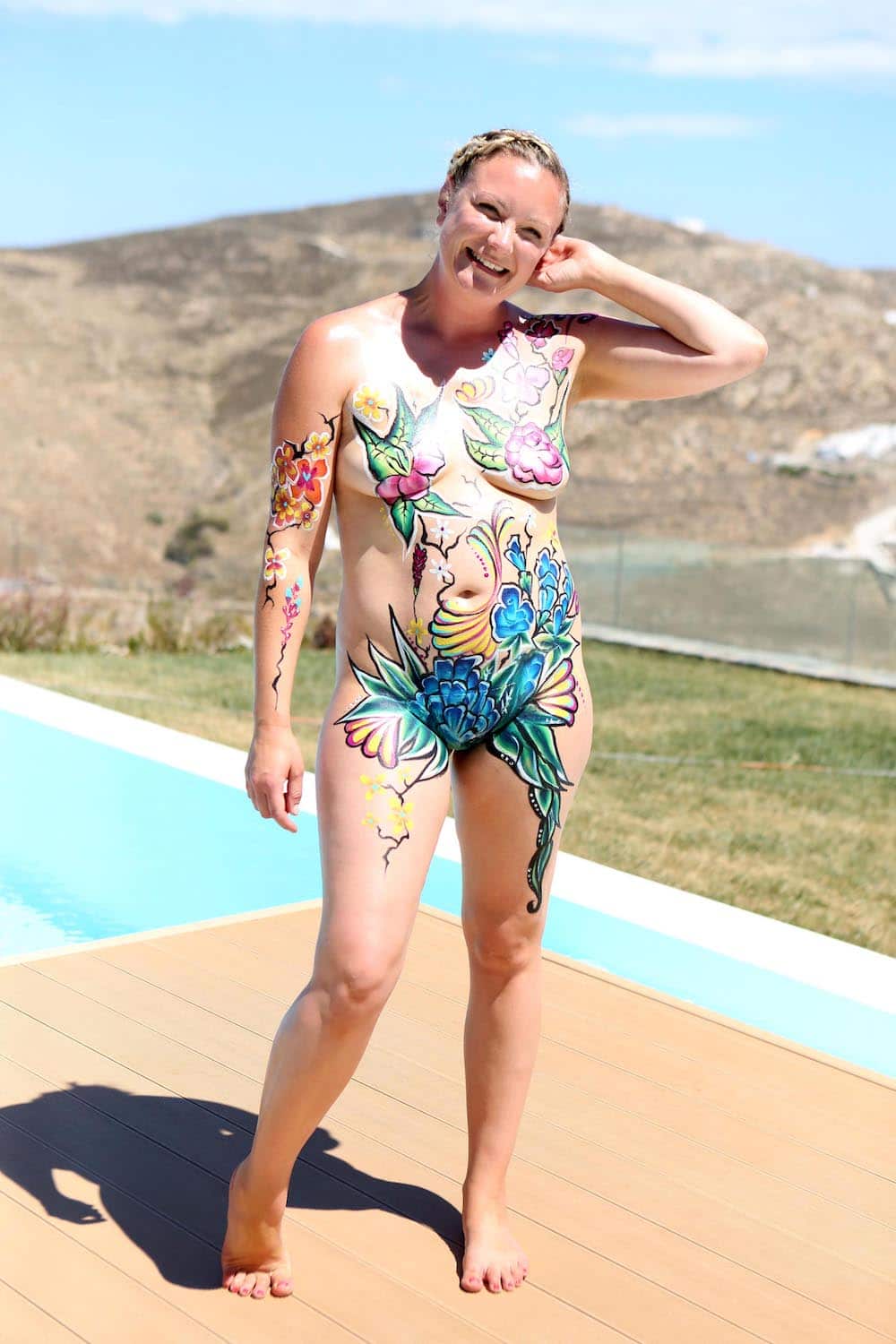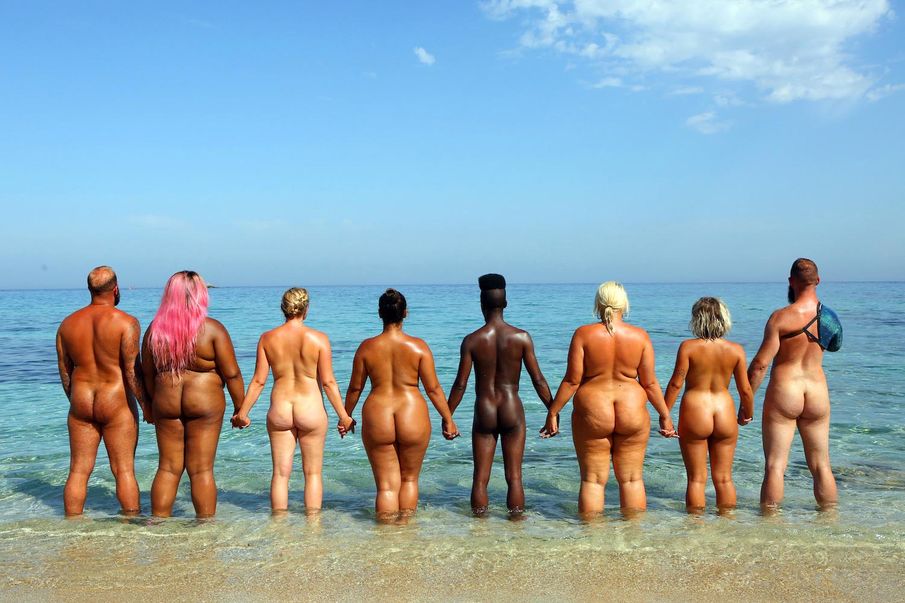Naked Beach lesson plans and resources look to offer help on body confidence
Using the hit Channel 4 show Naked Beach, co-presenter Natasha has created a series of free, downloadable resources for teachers. Designed for teens aged 13-16, these will focus on helping young men and women build their confidence in their body shape and size.
Natasha, who has been teaching body image and mental health lessons in schools all over the U.K. and beyond for over a decade, has created two lessons that include two workshops that each run an hour long - one focussing on a male case study and one on a female case study from the programme. Video resources for the lessons were provided by Barefaced TV and Channel 4.
#MentalHealthAwarenessWeek might be nearly over, but it’s theme of #bodyimage should be talked about all year round. Excited to hear that #NakedBeach is coming into schools thanks to @_NatashaDevon ✨more info coming soon. pic.twitter.com/qOF7tG8bM3
— Felicity (@FelicityHayward) May 17, 2019
If you haven’t seen the programme, Naked Beach is a TV experiment devised by Natasha and Dr. Keon West at Goldsmiths, University of London which aims to help participants to love their bodies by immersing them with body positive people, who are all naked, bar some body paint.
Natasha told Happiful that there are a few specific, important angles missing from currently-available body image resources for schools. She explains,
“The first is addressing ‘health’ concerns. Increasingly, young people believe ‘body confidence’ is synonymous with ‘getting really fat and unhealthy.’ But health is a lifestyle, not a look, and in fact the evidence shows people who dislike their bodies avoid physical activity for fear of judgement and can binge eat to distract from feelings of shame.
“We used Darryl from Naked Beach as a case study because his story demonstrated precisely that. He was very physically active, then a knee injury meant he was sedentary for a while and gained lots of weight. This left him too self conscious to re-engage with sport. After accepting his body wholeheartedly he started working out again.
“The second aim was to challenge the narratives which tell us that body image is a ‘girly’ issue and that it’s always related to body shape or size. As well as Darryl, we used case study Jolie who has a skin condition called vitiligo.
“Increasingly, young people believe ‘body confidence’ is synonymous with ‘getting really fat and unhealthy.’ But health is a lifestyle, not a look, and in fact the evidence shows people who dislike their bodies avoid physical activity for fear of judgement and can binge eat to distract from feelings of shame.”
“Thirdly, we wanted to create a resource which taught young people how to use social media positively. Too often, the message is ‘social media is bad, everything is filtered and photoshopped.’ Teenagers know this, yet the feedback I receive suggests this doesn’t stop them aspiring to an impossible beauty standard.
“What Naked Beach showed was that who you surround yourself with is crucial in shaping your attitude. That’s just as applicable online. Whilst social media gets a bad rep, it does give access to people like our body positive hosts, who actively challenge the visual narrative provided to young people by other influencers and pornography. Young people can design their online wallpaper to enhance their wellbeing, rather than bash their self-esteem.”
We spoke with Molly Forbes, who is one of eight body confident hosts on the programme. She said, “I think we place a lot of moral value upon health in this country when the truth is, you can't actually tell much about a person's mental or physical health just by looking at them.
“We know that body image issues can affect not only someone's mental health but their physical health too - and we definitely saw this with some of the guests on the show. When you feel bad about your body you’re less likely to do things that feel good for it, so that may be over-exercising or not exercising at all, for example, or eating in a disordered way.
“If we get away from this idea that health only looks one way and placing so much emphasis on the link between health and aesthetics, I think the benefits would be huge both for ourselves as individuals and society as a whole. We’d be more likely to move our body for joy and stick to it, more likely to eat in a way that feels intuitive and enjoy food - but also less likely to link a person's worth as a human and a member of society to their health.”

Molly said that the feedback from young people watching the programme has been powerful. “I've had hundreds and hundreds of messages from parents and young people who’ve watched Naked Beach and been really affected by it. I’ve heard from Girl Guide leaders who’ve recommended it to all their guides, and from mums who’ve watched the show with their teenage daughters. I’ve also heard from teenagers who’ve recommended the show to their own parents who they think could benefit from its message!
“When the Naked Beach educational resources were announced I was inundated with messages from parents wanting to know how they could get the classes taught in their kids’ schools, and from kids who wanted to recommend it to their own teachers.
“It goes to show that Naked Beach isn’t just a hugely entertaining, uplifting and inspiring piece of telly, it’s also had a really important, positive impact on the way people feel about their own bodies and the conversations we have around body image in society as a whole.”
Teachers can download the resources, free of charge here. For more information on how you can help promote positive body image and self confidence in teens, have a look at these articles:
How to Help Teens Cope with Body Image Issues
Nine Ways to Help Teens with Body Image Issues
Main image courtesy Channel 4.


Comments